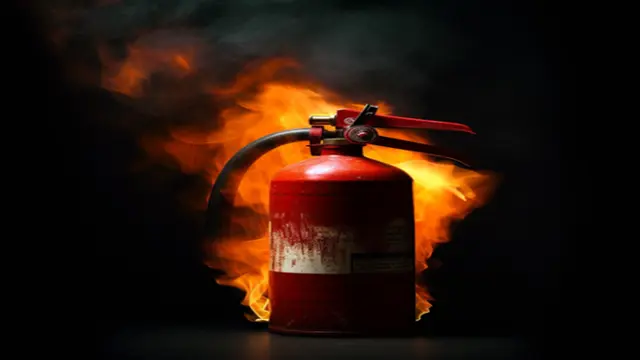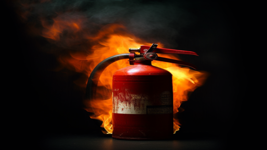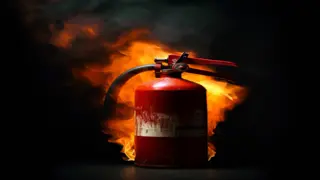
Online Fire Safety Management Diploma
Fire Safety Management Diploma with free certificate and transcript
Elearn College
Summary
- Diploma Certificate and Transcript - Free
- Exam(s) / assessment(s) is included in price
Add to basket or enquire
Overview
Introducing the Fire Safety Management Diploma, a comprehensive online course designed for individuals seeking to enhance their understanding of fire safety and its management. This course delivers essential knowledge and skills for professionals working in various sectors, such as building design, construction, electrical safety, and industrial settings. By undertaking this diploma, participants will be equipped with the expertise needed to effectively manage fire safety, ensuring the well-being of people and the protection of property.
The Fire Safety Management Diploma covers a wide range of topics, providing a thorough understanding of fire safety principles, fire prevention measures, and emergency response strategies. The course content is carefully curated to provide an in-depth knowledge of the most relevant and up-to-date aspects of fire safety management.
One of the critical components of this online course is an introduction to Fire Safety Management, which lays the foundation for understanding the importance of effective fire safety practices. Participants will learn about the various factors that contribute to the risk of fire and strategies for mitigating these risks.
Course media
Description
The course delves into Fire Prevention, focusing on methods to reduce the likelihood of fires occurring. This includes an overview of fire hazards, identifying potential ignition sources, and implementing preventive measures to minimise risks.
Fire Detection and Alarm Systems are vital for the early identification of fires, enabling a swift response. This section of the course provides an in-depth look at the different types of detection and alarm systems available and how they function. Participants will gain an understanding of the best practices for system installation, maintenance, and testing.
Emergency Planning and Evacuation is another crucial aspect of the Fire Safety Management Diploma. This section covers the development of emergency plans, the importance of clear communication, and the role of fire marshals. Participants will learn how to conduct effective evacuations in various settings, ensuring the safety of occupants during an emergency.
Fire Suppression Systems play a significant role in containing and extinguishing fires. The course explores the different types of suppression systems available and the appropriate applications for each. Participants will develop an understanding of system design, installation, and maintenance, as well as the criteria for selecting the most suitable system for specific environments.
Building Design and Construction has a direct impact on fire safety. This section of the course focuses on the principles of fire-resistant design, construction materials, and building codes. Participants will learn how these factors influence the behaviour of fires and the best practices for minimising risks.
Electrical Safety is a critical aspect of fire safety management. This part of the course addresses the common causes of electrical fires and explores preventive measures to reduce risks. Participants will learn about electrical safety regulations, equipment maintenance, and safe work practices.
Industrial Fire Safety is another essential topic covered in the Fire Safety Management Diploma. This section highlights the unique risks associated with industrial settings and the appropriate measures to mitigate those risks. Participants will learn about hazard identification, risk assessment, and the implementation of effective fire safety management systems in industrial environments.
Emergency Response and Firefighting provides an understanding of the strategies and techniques employed by firefighters to tackle fires. The course covers the principles of firefighting, the use of firefighting equipment, and the role of fire and rescue services.
Lastly, the course addresses Regulatory Compliance, ensuring that participants understand the importance of adhering to relevant fire safety regulations and standards. This section provides an overview of the legal requirements and guidance for fire safety management, helping participants to maintain compliance and avoid potential penalties.
In summary, the Fire Safety Management Diploma is a comprehensive online course that equips participants with the knowledge and skills required to effectively manage fire safety across various sectors. By completing this course, individuals will be well-prepared to implement best practices, maintain regulatory compliance, and protect lives and property from the devastating effects of fire. Don’t miss this opportunity to enhance your expertise in fire safety management – enrol today!
What you will learn
1:Introduction to Fire Safety Management
2:Fire Prevention
3:Fire Detection and Alarm Systems
4: Emergency Planning and Evacuation
5:Fire Suppression Systems
6:Building Design and Construction
7:Electrical Safety
8:Industrial Fire Safety
9:Emergency Response and Firefighting
10:Regulatory Compliance
Who is this course for?
Anyone having an interest in Fire Safety Management
Requirements
There are no entry requirements. No background training or qualifications are required. Anyone can enrol at any time, beginners, intermediates and experienced all year round.
Career path
On successful completion, learners will have a comprehensive understanding of the principles and practices of Fire Safety Management and will have developed some essential skills required to take their first steps into this industry. Career opportunities in this field include:
Fire Safety Officer
Fire Inspector
Safety Consultant
Fire Prevention Specialist
Safety Trainer
Health and Safety Officer
Questions and answers
Currently there are no Q&As for this course. Be the first to ask a question.
Certificates
Diploma Certificate and Transcript
Digital certificate - Included
Reviews
Currently there are no reviews for this course. Be the first to leave a review.
Legal information
This course is advertised on reed.co.uk by the Course Provider, whose terms and conditions apply. Purchases are made directly from the Course Provider, and as such, content and materials are supplied by the Course Provider directly. Reed is acting as agent and not reseller in relation to this course. Reed's only responsibility is to facilitate your payment for the course. It is your responsibility to review and agree to the Course Provider's terms and conditions and satisfy yourself as to the suitability of the course you intend to purchase. Reed will not have any responsibility for the content of the course and/or associated materials.



